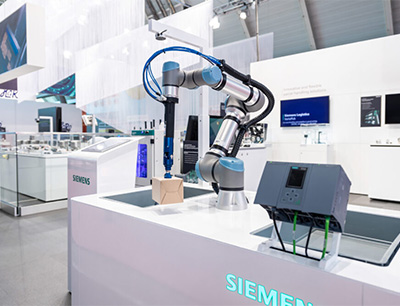
In October 2023, the first AI pilot projects of the “Green AI Hub Mittelstand”, an initiative by the German Federal Ministry for Environment geared towards small and medium sized enterprises, have begun work. Within the project, over the course of six months, AI experts developed sustainable AI applications for at first five small and medium-sized enterprises (SME) and now implemented them right on the spot in cooperation with these companies, a special feature of this initiative. Until the end of 2025, up to 20 pilot applications are planned. The solutions developed are made available to further companies for free as open source solutions. A packaging company is among those participating in the first pilot phase: The family-owned business “4Packaging” from Dissen in Lower Saxony in Germany produces gravure cylinders for printing on packaging. The cylinders are submersed in chemical baths and coated with copper, the properties of which are a central factor for quality. The AI system is to reduce the consumption of resources during the process and avoid faults in printing.
Plastics Europe, the European association of plastics producers, views artificial intelligence and digitalization as the keys to reduce the ecological footprint in the plastics industry and to contribute to a sustainable transformation in the plastics industry’s added value chain. AI algorithms can accelerate the development of more environmentally friendly materials with improving properties like shelf-life or the impact on the environment. Precise control of and communication with machines can also help optimise production processes, reducing energy consumption during the processing of plastics. And thanks to AI and digitalization, the recycling process is also made more efficient. Modern sorting systems already use digital marking and AI algorithms to automatically sort waste plastic into different categories.
Ingemar Bühler, Managing Director, Plastics Europe, says: "The ongoing digitalization of the plastics industry is opening up a new chapter in innovation and sustainability. Companies making the best use of this technology will be able to reduce their ecological footprint while at the same time bringing competitive products to market. All in all, AI and digitalization contribute significantly to making the entire circulation process more efficient, to designing better products, and to reducing the consumption of materials as well as waste production. Our goal is to maintain or even increase competitive performance while significantly reducing the impact which the plastics industry has on the environment.”
Through networking, digitalization and automation of work processes as well as switching to more sustainable packaging materials and production processes, the world of packaging is currently on its way towards a fundamental redesign, says machine manufacturer Bobst. The company is now equipping all machines delivered newly to market with its cloud-based data and remote service platform Connect, and this way wants to make it easier for customers to digitally transform their processes. Customers can access production data and further information for all machines at any time and with any manner of end user device. As a first step, the tool provided mostly control functions for the most important machine data. The newest level of expansion also adds many different options for efficient control and optimization of production in real-time.
In cooperation with pilot customers, Bobst is also developing dashboards which visualize production performance as digital twins. For example, factory managers can use these dashboards to access the “virtual machines” either from their desk or using a mobile device. They can see their current operation status as well as the most important performance data in real-time, for example which order is being processed for which customer or how many packages from this order have already been produced.
In internal logistics, too, complete automation and digitalisation are seen as a decisive advantage over the competition. In this context, Siemens covers many aspects of warehousing with its solutions, including incoming goods, transport, storage, commissioning, packaging and shipping. This year, the company introduced the holistic digital twin of its own distribution centre in Nuremberg, which services 25,000 customers world-wide with 12,000 orders each day, 22,000 ordered items, 27 shelf-operation devices and three kilometres of automated conveyor belts. This real example shows how simulation scenarios can for example optimise shift planning to reach maximum productivity. Digital twins also help to identify bottle necks and peak loads in order to optimize material flow. The seamless interaction between real and digital world increases productivity and flexibility of the systems, permanently reduces costs and energy consumption and therefore also the carbon footprint.
A new addition to the Siemens internal logistics portfolio is the Simatic Robot Pick AI, an image processing software for robot solutions based on machine learning. The 3D image processing software allows robots to grip any article as they perform commissioning tasks in the warehouse, regardless of the article's shape or size. A pre-trained deep-learning algorithm controls this ability in order to identify those 3D positions that are best suited for taking out and to provide these to the robot's executive function. The application is designed to already run at the computing power of a tablet-like IPC with calculation times of less than 1.5 seconds, reaching system pick rates of more than 1,000 picks per hour. AI-controlled commissioning robots will in the future be able to work on a high variance of objects with different shapes, sizes and types of packaging, both promptly and in dynamically changing situations. This ameliorates the effects that a lack of workers has while at the same time increasing the business efficiency of storage.
Digital technologies were the focus of many other companies at Interpack 2023, too. The next Interpack will take place in Düsseldorf from May 7 to 13, 2026.